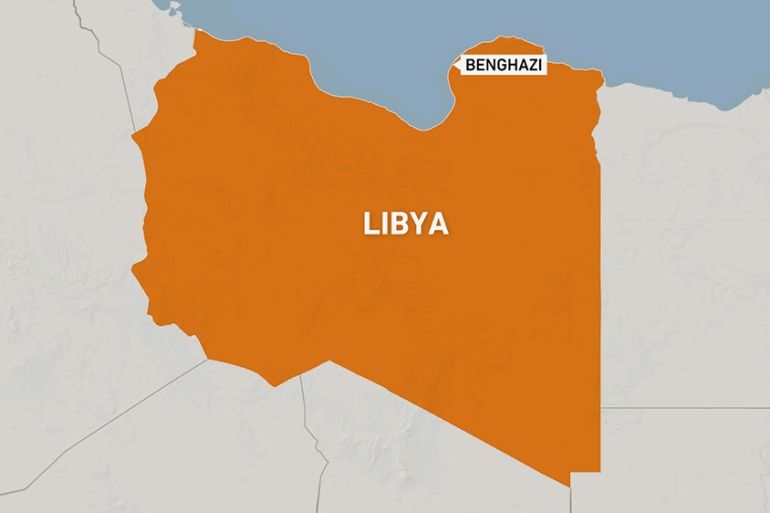Anger in Libya’s Benghazi over power cuts, living conditions
Demonstrators rally in rare show of public dissent amid deteriorating conditions in Libya’s second-biggest city.

Dozens of protesters have rallied in Benghazi over deteriorating living conditions and power cuts, in a rare show of public dissent in Libya’s second-biggest city.
Footage posted on social media on Thursday showed large plumes of smoke rising into the sky after demonstrators set tyres ablaze and blocked access to some roads.
A city of some 650,000 residents, Benghazi is the main base of renegade military commander Khalifa Haftar, whose self-styled Libyan National Army (LNA) in April 2019 launched an offensive to wrest control of the capital, Tripoli, the seat of the internationally recognised Government of National Accord (GNA).
#BREAKING
Locals in Libya’s second largest city Benghazi protest against the continuous power cuts & fuel shortage. #Libya #LibyaReview pic.twitter.com/E8yStqZDAa— Libya Review (@LibyaReview) September 10, 2020
The electricity supply has deteriorated this year, leading to protests last month in Tripoli and adding to poor living standards amid a surge in coronavirus cases.
The most immediate cause of the worsening power supply is a lack of fuel for electricity plants. The LNA has accused the Tripoli-based National Oil Corporation (NOC) of not importing enough fuel to operate the plants.
The NOC last month warned of worse blackouts in eastern Libya, saying the shortage was caused by the LNA’s months-long blockade of oil and gas facilities. It said imports of diesel to operate the plants were causing it “severe financial difficulties”.
The NOC has appealed for the LNA to end the blockade, which began in January and has drastically cut production, leading to a near-total collapse of energy revenue – Libya’s main source of foreign currency – this year.
PHOTOS | Protests in the Sidi Hussein area and Jamal Abdel Nasser Street in #Benghazi due to increase in #electricity cuts, after #NOC's Mustafa #Sanallah diverted to another destination a diesel tanker which was intended to feed the city's stations. #Libya pic.twitter.com/TOJEBeJSPb
— صحيفة المرصد الليبية (@ObservatoryLY) September 10, 2020
The LNA is backed by the United Arab Emirates, Russia and Egypt. The GNA is supported by Turkey.
Earlier on Thursday, the European Union said its naval mission in the Mediterranean had stopped a ship heading from the UAE to Benghazi carrying jet fuel on suspicion of breaking an arms embargo.
Libya has endured almost a decade of violent chaos since the 2011 NATO-backed uprising that toppled and killed longtime ruler Muammar Gaddafi.
The oil-rich country has been split between governments in the east and west since disputed elections and an escalation in fighting in 2014.
Peacemaking efforts in Libya have accelerated since Haftar’s Tripoli offensive ended in June after being beaten back by the GNA forces, with the front lines solidifying near the central city of Sirte.
Members of the two sides’ rival parliamentary assemblies have been meeting this week in Morocco and said on Thursday they had agreed to criteria for appointing senior figures in sovereign institutions, representing a step forward in the talks.